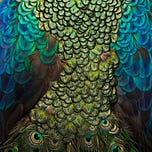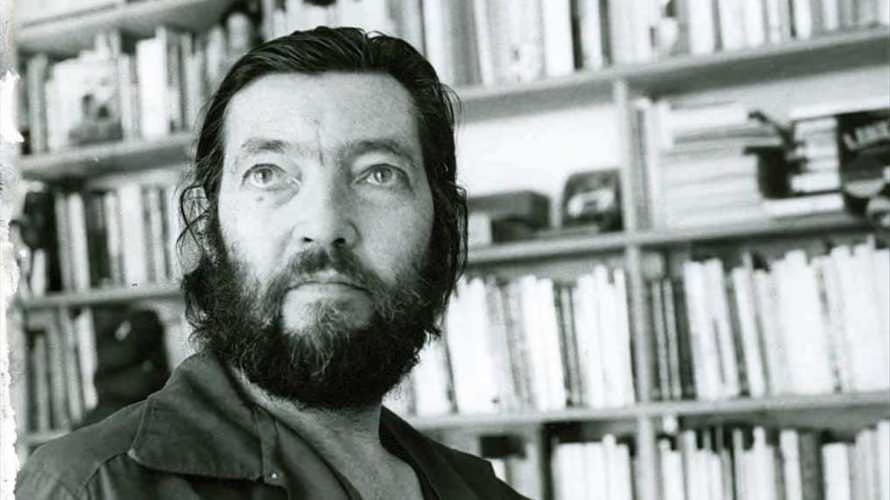The German naturalist Alexander von Humboldt told a friend, a Parisian doctor, that he wanted to meet a certifiable lunatic. He was invited to the doctor’s home for supper. A few days later, Humboldt found himself placed at the dinner table between two men. One was polite, somewhat reserved, and didn’t go in for small talk. The other, dressed in ill-matched clothes, chattered away on every subject under the sun, gesticulating wildly while making horrible faces. When the meal was over, Humboldt turned to his host.
“I like your lunatic,” he whispered, indicating the talkative man. The host frowned.
“But it’s the other one who’s the lunatic. The man you’re pointing out is Monsieur Honoré de Balzac.”
I'm sharing this story with you to shed light on the hazards of the craft. You cannot see me now, but if you could—and you never will—I am making horrible faces too, showing teeth to hit higher notes, and I do hand gestures like the Italians because it projects my voice and avoids droning. In some recording sessions, my vocal folds have colors unknown to me. I recall the short story Letter for a Young Lady by Julio Cortázar. As the guy of the surreal story, I'm going to vomit up a little rabbit that will nibble the cable of the microphone to create something new. The creative process is a perpetual orgy. The more, the merrier. I understand that you may not always enjoy the soundtrack, but sometimes it works wonders—whether by chance or by design. Cortázar would enjoy this format, considering that his funny Hopscotch has constant musical references. I have listened to all his tapes with the frill of his exotic mix of Argentinian and French accents.
In a canon novel—Honoré de Balzac wrote ninety—there are numerous characters. Imagine an author possessed by the characters he just made up. I call it dreaming awake, with good spirits, considering the absurdities I have to rule out to find the one that fits the composition. Some masters scribbled at a stand-up desk, like Thomas Wolfe on top of one of the first refrigerators, and helped keep his mind flowing freely. Or Ernest Hemingway, writing on his feet and thinking on his toes at the first light, as sober as a judge, staying alert, avoiding sluggishness, and enabling him to produce his crisp, fast-paced narratives, felt he was boxing in a ring against the old Russian masters.
And to comprehend this competitive attitude, one should consider well the audacity that writing fiction entails from one’s own point of view. What I may think of as an original and somewhat relevant is what a wolf does to feed its puppies—regurgitating what I read somewhere else. I owe what I am to what I've read. And the way to realize an unwilling mimicry is to read more classic literature to reach out to the original sources. An unconventional approach to the craft and a unique narrative voice, that is all I want. Otherwise, I'm not writing a relevant novelty, which is the meaning of the word "novel", but a pastiche.
That being said, if there is a keyword to define a contemporary art form, expressed in continuous sagas and prequels and spinoffs and re-dressed and gender-swapped casting, it's indeed pastiche. We fully embraced a culture of mediocrity and boredom, whereby commercial success is all that counts.
From now on, I shall include in this podcast renditions of my work. Listed under the category of Books and Fiction, I should sing for my supper as a dedicated author whose goal is leaving behind a legacy, before the vocal folds atrophy leave me whispering, given that I skipped the biological way to be immortal, that is, having children. I really think we are already packed, agree? Not counted by millions but 8.2 billion, the human race has to spread out to the stars, seeking new worlds.
The poles and the glaciers are melting because we are unable to control our greed—burning fossil fuel at an industrial scale for nearly two centuries and polluting the oceans with microplastics—even though we have been told about the fatal consequences by the scientific community. Anterior life forms disappeared across the five massive extinctions that mark Earth's history, like the brutal end of the Permian with 96% of species gone, did not stand a chance. But we would if we stopped killing each other and invested in exploration instead of weapons.
About seeking new worlds in the heavenly vault, here is the icing on the cake.
The German film director Wim Wenders and Martin Scorsese, as producer, released The Soul of a Man, a documentary about a message in a bottle into the cosmic ocean. NASA launched the interstellar probe Voyager, with a golden-plated record, to never return. With the hope of finding a superior live form that could manage a suitable player—that was the analogic era of 1977—Carl Sagan compiled images, utterances in many languages, but also Blind Willie Johnson’s 1927 Dark Was the Night, Cold Was the Ground that you are hearing.
Son of a sharecropper, impaired since he was seven years old during an episode of domestic violence, Willie led a peripatetic existence and became a religious busker. Between 1927 and 1930, he recorded an impressive 30 songs for Columbia Records. His celebrity career ended with the Great Depression, after which he continued to perform as a street singer with his last wife, Angeline, playing together the call-and-response format.
After extinguishing a fire that left the poor couple sleeping in the burned ruins of their humble abode on a bed of damp newspapers, living that way until two weeks later, Willie contracted pneumonia but wasn't admitted to the hospital. Because he was blind, black, and couldn't afford a hospital bed. He died at 48 years old and was buried in an unmarked pauper's grave.
I wonder whether Blind Willie Johnson ever cared, thought, or imagined how far his work would travel into the distant future—and distant time. And the extraterrestrial audience he might—or might not get—in the pursuit of accidental beauty and spiritual bliss.


















Share this post